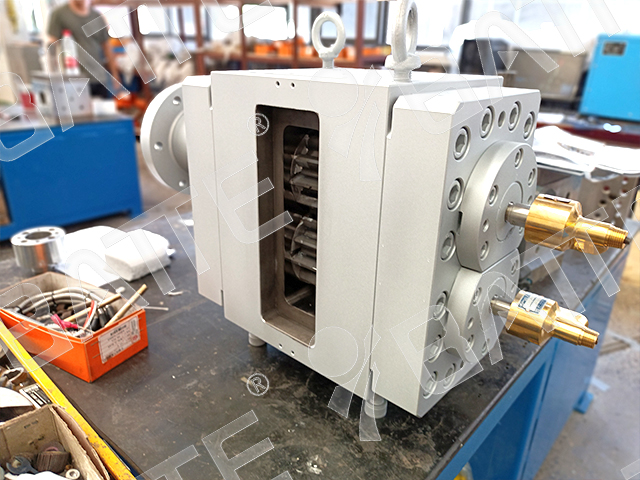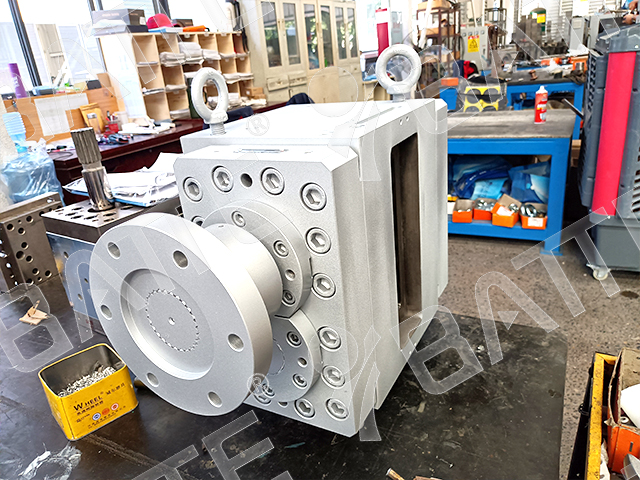Let’s talk about rubber melt pumps and gear pumps
Definition and function of rubber extrusion melt pumps
A rubber extrusion melt pump is a high-precision conveying device specifically designed for the rubber processing industry. Its core function is to uniformly convey high-temperature molten rubber to the extruder die head through stable pressure and flow control. It effectively eliminates issues such as dimensional deviations and bubbles caused by pressure fluctuations in traditional extrusion processes, significantly improving product density and surface finish. In the production of high-end rubber products such as tires, seals, and hoses, melt pumps have become critical process equipment.

Structure and Working Principle
The device consists of a gear set made of high-temperature-resistant alloy steel, a precision bearing system, a heating temperature control module, and a pressure sensor. During operation, the meshing gears rotate within a sealed chamber, utilizing a volumetric conveying principle to push the rubber melt from the inlet to the outlet. The specially designed involute gear tooth profile reduces shear heat, preventing degradation of rubber molecular chains. Modern melt pumps typically integrate a PID closed-loop control system, which adjusts the speed in real time to maintain outlet pressure fluctuations within ±0.5%.
Technical Advantages Analysis
- Energy-efficient and high-performance: Compared to traditional screw extrusion, energy consumption is reduced by 15%-30%
- Quality Improvement: Cross-sectional tolerances of extruded products can be controlled within ±0.1mm
- Process Adaptability: Supports processing of various materials such as styrene-butadiene rubber and ethylene-propylene-diene monomer (EPDM) rubber
- Long-Life Design: Nitrided gear surfaces ensure wear resistance exceeding 20,000 hours
Industry Application Scenarios
In the extrusion of radial tire treads, the melt pump ensures uniform filling of the tread grooves with rubber compound; during high-pressure hose production, its stable output characteristics prevent micro-cracks in the inner liner layer; for colored rubber products, it also enables precise control of masterbatch mixing ratios. In recent years, this technology has also been widely adopted in high-end applications such as silicone seals for new energy vehicles.

Selection and Maintenance Considerations
Pump body specifications should be selected based on rubber viscosity (typically 50–500 Pa·s) and production capacity (0.5–10 tons/hour). Key maintenance considerations include:
- Regularly replace high-temperature grease (recommended every 4,000 hours)
- Use a laser alignment tool to calibrate motor concentricity
- During shutdown, use specialized cleaning material to replace residual rubber
Email: sale@meltpump.com
WhatsApp: +86 158 3833 1071